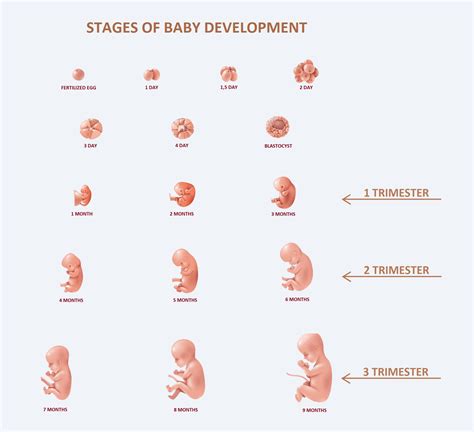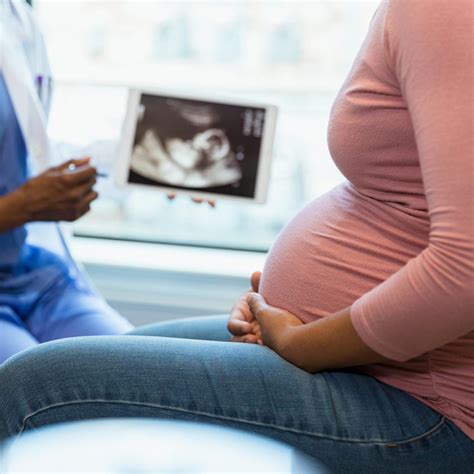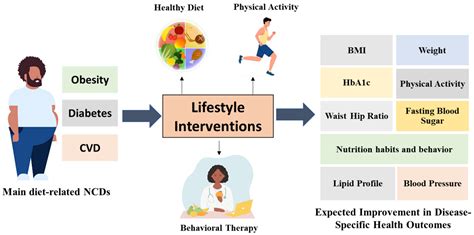Intro
Discover the latest developments at 13 weeks pregnant, including fetal growth, symptoms, and pregnancy health tips, to ensure a smooth trimester journey with a healthy baby.
Being thirteen weeks pregnant is an exciting milestone for expectant mothers. At this stage, the embryo is now referred to as a fetus, and several significant developments are taking place. The fetus's major organs and body systems are functioning and developing, and the mother's body is also undergoing various changes. As the pregnancy progresses, it's essential for mothers-to-be to stay informed about what to expect and how to ensure a healthy pregnancy.
The thirteenth week of pregnancy is a critical period, and mothers may experience a range of physical and emotional changes. Morning sickness, which is common during the first trimester, may start to subside, and energy levels may increase. However, some women may still experience mood swings, fatigue, and food cravings. It's crucial to maintain a balanced diet, stay hydrated, and engage in regular exercise to support the fetus's growth and overall health.
As the fetus grows and develops, it's fascinating to learn about its progress. At thirteen weeks, the fetus is approximately 2.5 inches long and weighs around 0.25 ounces. Its major organs, such as the heart, lungs, and liver, are functioning, and its senses are starting to develop. The fetus can detect light and darkness, and its skin is starting to thicken. The mother's body is also preparing for the baby's arrival, with the uterus expanding and the cervix beginning to dilate.
Physical Changes During the Thirteenth Week

Common Symptoms and Remedies
Some common symptoms during the thirteenth week include: * Morning sickness and nausea * Fatigue and mood swings * Breast tenderness and food cravings * Mild cramping and spotting * Back pain and pelvic pressure To alleviate these symptoms, mothers-to-be can try: * Eating small, frequent meals to manage morning sickness * Practicing relaxation techniques, such as meditation and deep breathing, to reduce stress and anxiety * Engaging in regular exercise, such as walking or prenatal yoga, to improve mood and energy levels * Getting plenty of rest and sleep to help the body recover from the physical demands of pregnancyFetal Development at Thirteen Weeks

Major Organ Development
The fetus's major organs are developing and functioning, including: * The heart, which is pumping blood through its chambers * The lungs, which are starting to produce surfactant to facilitate breathing * The liver, which is producing bile and helping to filter waste * The kidneys, which are producing urine and helping to filter waste * The pancreas, which is producing insulin and helping to regulate blood sugar levelsPrenatal Care and Check-Ups

Importance of Prenatal Care
Prenatal care is essential for ensuring a healthy pregnancy and preventing any complications. Regular check-ups can help: * Monitor the fetus's growth and development * Detect any potential issues or complications early on * Provide guidance on nutrition, exercise, and lifestyle habits * Offer support and reassurance during the pregnancy journeyNutrition and Lifestyle Habits

Importance of Nutrition
A balanced diet is essential for supporting the fetus's growth and development, as well as the mother's overall health. A healthy diet can: * Provide essential nutrients and vitamins * Support the development of the fetus's major organs and body systems * Help prevent any potential complications or issues * Support the mother's energy levels and overall well-beingEmotional and Mental Wellbeing

Importance of Self-Care
Self-care is essential for maintaining emotional and mental wellbeing during pregnancy. Mothers-to-be should prioritize: * Getting plenty of rest and sleep * Engaging in activities that bring joy and relaxation * Practicing mindfulness and self-compassion * Seeking support and guidance when neededSupport Systems and Resources

Importance of Community
Building a strong community and support network is essential for mothers-to-be. This can: * Provide emotional support and reassurance * Offer practical help and guidance * Help mothers-to-be connect with others who are going through similar experiences * Provide access to resources and informationWhat are the common symptoms during the thirteenth week of pregnancy?
+Common symptoms during the thirteenth week include morning sickness, fatigue, mood swings, breast tenderness, and mild cramping.
How can I alleviate morning sickness during the thirteenth week?
+To alleviate morning sickness, try eating small, frequent meals, practicing relaxation techniques, and getting plenty of rest and sleep.
What are the major developments in the fetus during the thirteenth week?
+The fetus's major organs, such as the heart, lungs, and liver, are functioning, and its senses are starting to develop. The fetus can detect light and darkness, and its skin is starting to thicken.
How often should I schedule prenatal care check-ups during the thirteenth week?
+Mothers-to-be should schedule regular prenatal care check-ups with their healthcare provider to monitor the fetus's growth and development, as well as their own health.
What are the importance of nutrition and lifestyle habits during the thirteenth week?
+Maintaining a balanced diet and healthy lifestyle habits is crucial for supporting the fetus's growth and development, as well as the mother's overall health.
As the pregnancy journey continues, it's essential for mothers-to-be to stay informed, prioritize their health and wellbeing, and build a strong support network. By doing so, they can ensure a healthy and happy pregnancy, and prepare for the arrival of their baby. We invite you to share your experiences, ask questions, and seek guidance from our community of expectant mothers and healthcare professionals. Together, let's navigate the exciting journey of pregnancy and parenthood!
